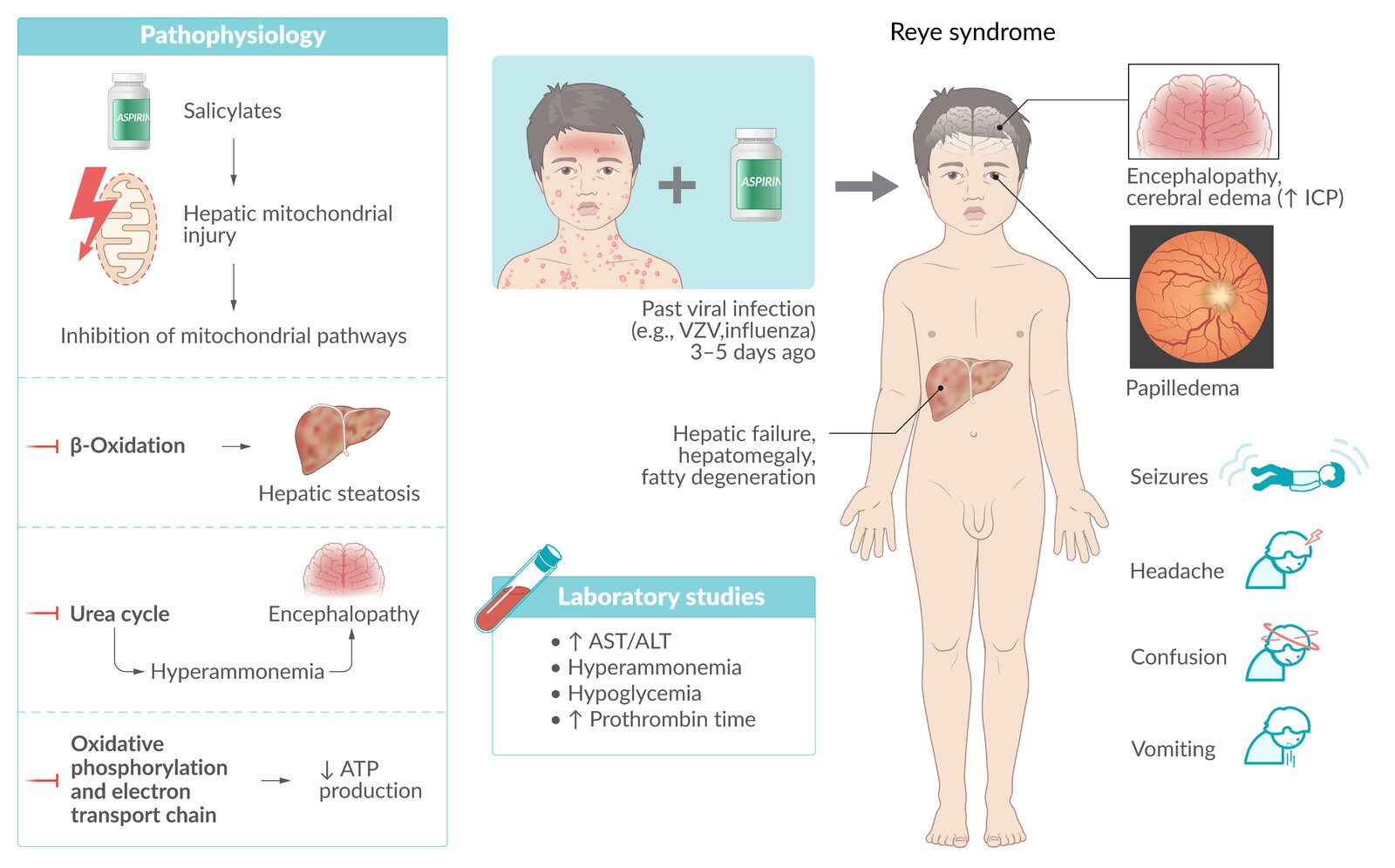- Description: a rare type of hepatic encephalopathy that is associated with aspirin use for viral illness in children < 19 years

- Etiology: aspirin use in individuals < 19 years of age with a febrile illness
- Pathophysiology
- Viruses alter the metabolism of salicylates → accumulation of salicylate metabolites in the liver → mitochondrial injury and reversible inhibition of enzymes required for fatty acid oxidation → failure of hepatic ATP production → acute hepatic failure → hyperammonemia, metabolic acidosis, and hepatic steatosis → acute encephalopathy
- Hyperammonemia → cerebral edema → ↑ ICP
- Clinical features
- Preceding viral infection (e.g., influenza, varicella or viral gastroenteritis): The first symptoms of Reye syndrome usually begin 3–5 days after a viral illness.
- Acute encephalopathy
- Severe vomiting
- Altered mental status (ranging from lethargy to delirium and coma)
- Neurological symptoms (e.g., seizures, fixed pupils)
- Liver failure
- Prevention
- Aspirin should be avoided in individuals < 19 years of age, especially those with fever.
- Exception: children with Kawasaki disease
